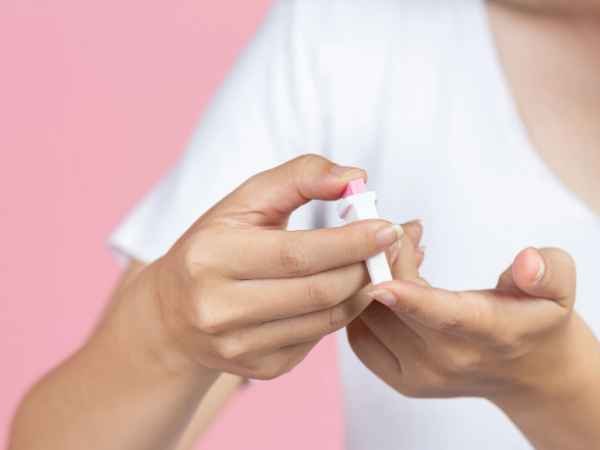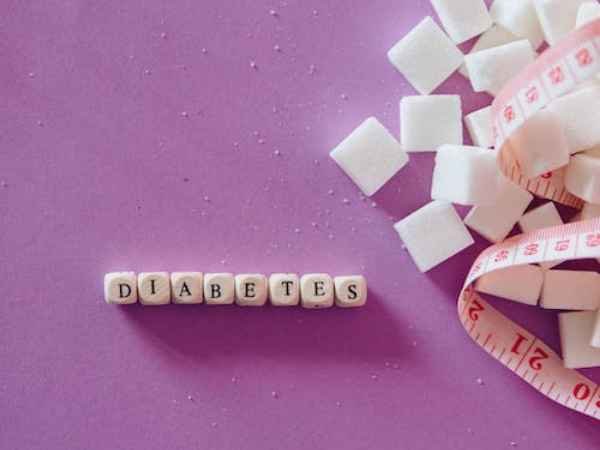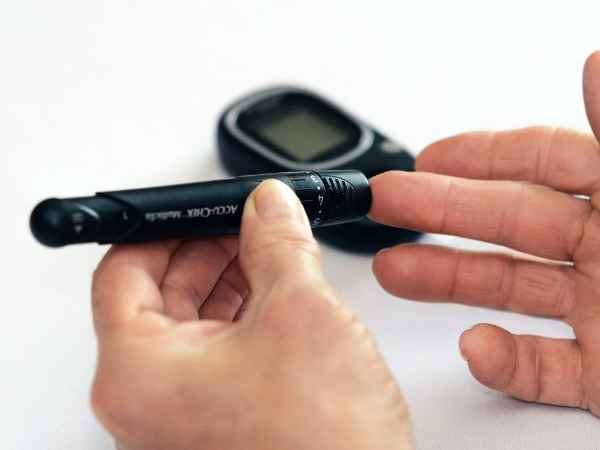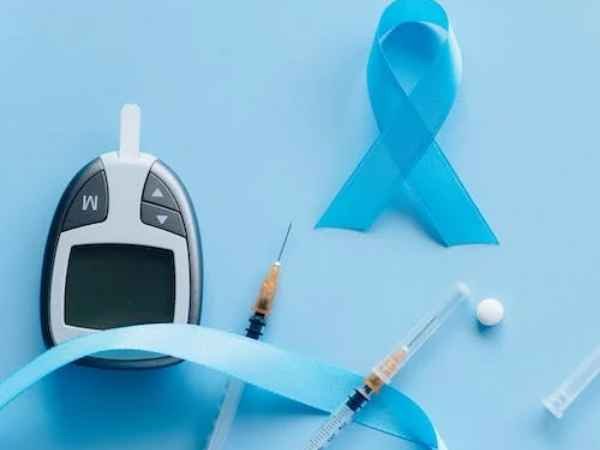12 Ways if you are wondering how to prevent diabetes at home!

How to prevent diabetes? No matter If you are someone who has been diagnosed with diabetes lately or dealing with it for a long time. You often think about this question. But before asking this question ask yourself, Can you prevent diabetes? The answer is yes. With these 8 tips, you can keep your blood sugar under control and avoid the risk of complications.
Well, Diabetes affects millions of people today. According to WHO, more than 29 million people have been diagnosed with diabetes, while about 5 percent of children under 12 years old have type 1 diabetes. In addition, more than 1.9 million people currently live with undiagnosed diabetes.
Quick Takeaways:
How to prevent diabetes: To help prevent diabetes, follow these simple guidelines-
- Eat fewer calories than you need. Aim for at least two servings of fruit daily, five servings of veggies daily, three servings of fiber-rich whole grain foods daily, and three ounces of protein per day.
- Keep a food journal. Record everything you eat and drink, including snacks and beverages. You’ll gain insight into what makes you feel full. Then you can make adjustments to your diet accordingly.
What causes diabetes?

The primary risk factors for developing diabetes include being overweight or obese, having high blood pressure, having a family history of diabetes, and being physically inactive. Other lifestyle choices associated with increased risk for diabetes include smoking cigarettes, consuming alcohol excessively, and not eating enough fruits and vegetables. In this blog, we have tried to share all the tips that are required to maintain diabetes. And to those who are still questioning themselves about how to prevent diabetes can be benefitted from these home remedies.
How does diabetes develop?
Diabetes develops when the body fails to use insulin effectively. Insulin, the hormone produced by the pancreas, helps move sugar out of the bloodstream into cells where it can be used for energy. When the body doesn’t produce enough insulin or becomes unable to properly utilize the insulin it produces, glucose remains in the blood. Over time, if left untreated, this excess glucose damages blood vessels and nerves causing serious complications.
Don’t let diabetes get you down, take one step at a time:
But, How to prevent Diabetes remains the same. The term “eat fewer calories than you need” might sound simple enough, but it’s a challenging concept. We all have meters in our heads telling us how many calories we need each day to function properly and keep weight at a healthy level. These formulas were developed for an earlier society that had access to much less healthy food options. Today, eating too few calories can cause serious health issues, especially if you are not taking in enough nutrients from your food.
The 12 best tips for managing diabetes

If you’re overweight and insulin resistant, there are several ways you can prevent and treat this chronic disease. If you are constantly thinking about how to prevent diabetes, Here are eight tips to help prevent diabetes:
- Reduce sugar consumption: Sugar is a major contributor to obesity and diabetes, so cutting out sugary foods is a great way to reduce unwanted pounds. If you want to lose weight fast, try eating fewer refined carbs (white bread, pasta, white rice), sweets, and sodas. Instead, opt for whole grains, vegetables, fruits, beans, nuts, seeds, and lean protein. These foods have less added sugar than their processed counterparts.
- Increase fiber intake: Diabetes patients should increase their daily consumption of soluble dietary fiber. Research shows that consuming at least 10 grams of soluble dietary fiber per day may help reduce blood sugar levels. Soluble fibers have been shown to lower cholesterol.
- Avoid saturated fat: Saturated fats raise triglycerides (a type of lipid) in the body, which contribute to cardiovascular disease. Insulin resistance means the body doesn’t respond well to insulin, which is produced naturally by the pancreas. When insulin isn’t effective, glucose stays in the bloodstream instead of being stored as glycogen in muscles and liver cells. Glycogen eventually converts to fat.
- Eat whole grains: Whole grains help to regulate blood sugar levels, which slows down the conversion of carbs to fat. Whole grains also provide protein and vitamins. Try brown rice, barley, oats, quinoa, buckwheat, millet, and wheat berries.
- Cut back on processed foods: Processed food includes bread, pastries, chips, cookies, crackers, cakes, pies, and pasta. These foods are often high in sodium, refined flour, and trans-fats. Processed foods cause spikes in blood pressure and insulin levels, both of which contribute to heart problems.
- Drink plenty of water: Drinking enough water helps keep blood sugar levels steady. Drinking 8 cups of water each day keeps your digestive system functioning properly. Water also flushes out toxins from your body.
- Don’t skip meals: When blood sugar levels get low, the brain sends signals to the pancreas to produce more insulin. If you’re not eating regularly, your body doesn’t know how much insulin to make. Your blood sugar drops even further. Skipping breakfast is especially dangerous because it causes your pancreas to overwork to compensate. Blood sugar crashes lead to headaches, fatigue, mood swings, dizziness, and confusion.
- Keep stress under control: Stress raises cortisol levels in the body. Cortisol influences many metabolic processes, including insulin production. Stress also interferes with sleep patterns, which affects insulin function.
- Get moving: Exercise not only burns calories but also boosts your mood and makes you sleep better. Find activities you enjoy doing and stick with them consistently. Exercise doesn’t always mean going to the gym; even a brisk walk can help you burn calories.
- Avoid artificial sweeteners: Artificial sweeteners aren’t good for your waistline, especially since they don’t satisfy your taste buds the same way natural sugars do. Artificial sweeteners also contribute to weight gain, cause digestive problems, and increase your risk of developing type 2 diabetes.
- Cut back on alcohol: Alcohol may make you feel full after drinking, but it causes you to eat more food later. Plus, if you drink regularly, you could end up consuming more calories than you would need. Alcohol also slows down digestion, making you hungrier sooner. And while some people find they can handle a few drinks now and then, others should avoid it completely.
- Eat smaller meals throughout the day: When you eat three small meals instead of two larger ones, you’ll feel fuller between meals and consume fewer calories. Try having breakfast at 8 AM, lunch at noon, and dinner at 6 pm. You’ll still get to enjoy your favorite foods, just in smaller portions.
How to prevent diabetes with medical treatments?

Insulin injections: Insulin injections are commonly used for treating type 1 diabetics who have no insulin production due to autoimmune destruction of pancreatic beta cells. These individuals require daily insulin injections. Type 2 diabetics often use oral medications combined with diet modifications and exercise to control their blood sugar levels.
Oral medications: Oral medication includes both prescription drugs and over-the-counter (OTC) drugs. Prescription drugs are prescribed by physicians and are regulated by the Food and Drug Administration (FDA). OTC drugs are not recommended by doctors and may cause side effects.
Insulin pumps: Insulin pumps are devices that deliver a steady supply of insulin directly into the body via a catheter inserted under the skin. When someone has diabetes, their bodies do not produce enough insulin, which causes high blood sugar levels. Insulin pumps were developed to provide continuous, safe, and effective insulin delivery. Insulin pumps are heaven for a diabetic person who needs insulin at specific intervals. They are easy to use for elderly people as well. There are various insulin pumps in the market like INSUL by AgVa, Medtronic MiniMed 630G System, Omnipod Dash, t: slim X2, Medtronic MiniMed 770G System, etc.
Hypoglycemic agents: Hypoglycemic agents are medications that lower glucose levels in the body. Examples include sulfonylureas, biguanides, alpha-glucosidase inhibitors, thiazolidinediones, incretin mimetics, meglitinide analogs, and sodium-glucose co-transporter 2 (SGLT2) inhibitors.
Final Takeaway,
As you can see, we tried to answer how to prevent diabetes with various tips. But there are many things that you can do to reduce your risk of developing diabetes. If these steps seem like too much to manage on your own, work with a dietitian first or even see an endocrinologist. But always remember It’s easy to get caught up in bad eating habits. We all have different needs, so it’s important to find out how many calories you need each day and how much exercise you should do per day.